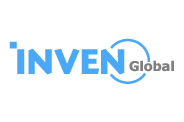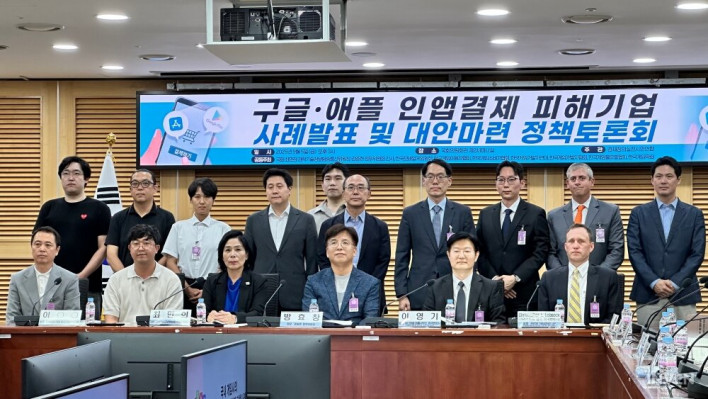
A Korean game studio testified at the National Assembly that Google and Apple’s abuse of their dominant market position has inflicted serious harm on local developers. The testimony came during the September 5 policy forum “Presentations by Companies Harmed by Google and Apple’s In-App Payments and Policy Alternatives.”
At the forum, Rep. Choi Min-hee, Chair of the National Assembly’s Science, ICT, Broadcasting and Communications Committee, said that although South Korea enacted the world’s first law banning forced in-app payments in 2021, Google and Apple continue restricting third-party payments, delaying or rejecting app reviews, and even delisting apps.
She warned that smaller studios and startups are too fearful of retaliation to raise complaints, and explained that she has introduced a bill—the “Prohibition of Retaliation by App Market Operators”—to ensure companies can report misconduct without fear and have their rights legally protected.Participants from industry, academia, and civil society at the forum broadly agreed that the “Prohibition of Retaliation by App Market Operators” is necessary.
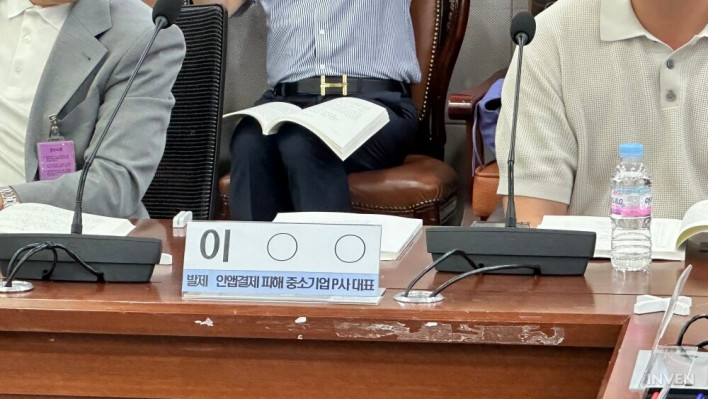
The representative of Company P, a mid-sized developer speaking anonymously to avoid reprisal, said Google and Apple charge as much as 30% in fees on in-app purchases. Even with third-party payment options, developers still pay 26% plus an additional 4–6% to payment processors, leaving the real burden largely unchanged. On top of that, the platforms effectively force use of their own ad and marketing systems, pushing developer costs past 35% and eroding profitability.
Company I, a mobile-game startup, described how vague standards for app reviews delayed or rejected its launches, in some cases by up to three months—causing major marketing losses. Company T, a casual-game studio, reported that automated replies and slow responses from customer support increased user complaints and refund requests, further lowering service quality.
To address these problems, Rep. Choi’s proposed amendment to the Telecommunications Business Act zeroes in on practical remedies. The bill would bar app stores from penalizing developers—through fees, app-store placement, or ad exposure—because they reported illegal conduct or sought damages. Courts would also be able to award treble damages for intentional violations.
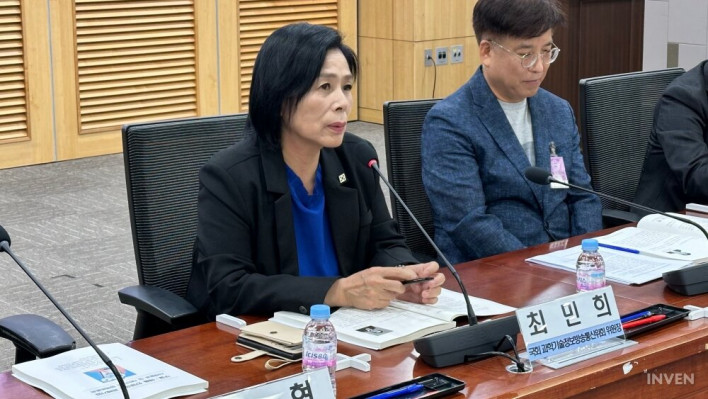
Another key change would shift the burden of proof: app stores would have to prove lack of intent or negligence to avoid liability, while courts could set damages even if companies struggle to quantify exact losses.
Speakers emphasized that Google and Apple’s unfair practices are drawing scrutiny internationally as well. Christopher L. Lebsock, a U.S. attorney who spoke at the forum, highlighted that a U.S. appeals court recently upheld a jury verdict finding Google monopolized Android app distribution and in-app payments. He cited “Project Hug” (later branded the “Apps and Games Velocity Program”), under which Google offered major game developers cash and perks to prevent them from leaving the platform—conduct U.S. courts ruled illegal. Lebsock also announced that a new lawsuit has been filed in the United States on behalf of Korean developers against Google and Apple, stressing that competition is the most effective check on monopoly power.
Participants reached a consensus that abuses of market dominance by Google and Apple can no longer be left unchecked. Wi Jung-hyun, president of the Korea Game Society, argued that the issue goes beyond games, touching on digital sovereignty, fair competition, and tax justice.
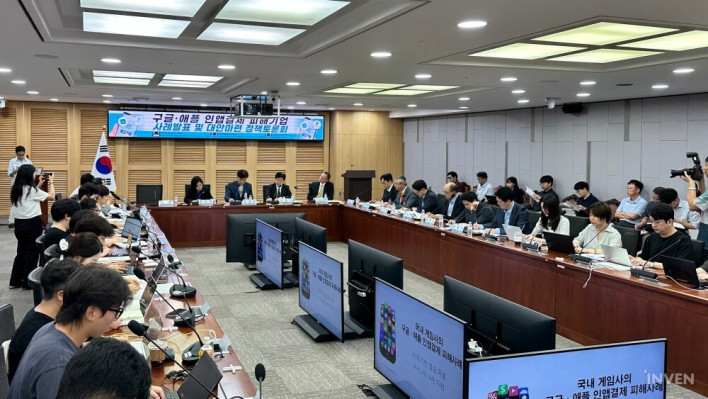
Lee Cheol-woo, head of the Korea Game Users Association, emphasized that consumers are also suffering. He noted that compared with domestic app store ONE store, Google Play averages 9% higher prices and Apple’s App Store 10.3% higher. Most consumers, however, are unaware of these gaps—meaning platforms are withholding key information and undermining consumers’ ability to make informed choices.
This article was translated from the original that appeared on INVEN.
Sort by:
Comments :0
